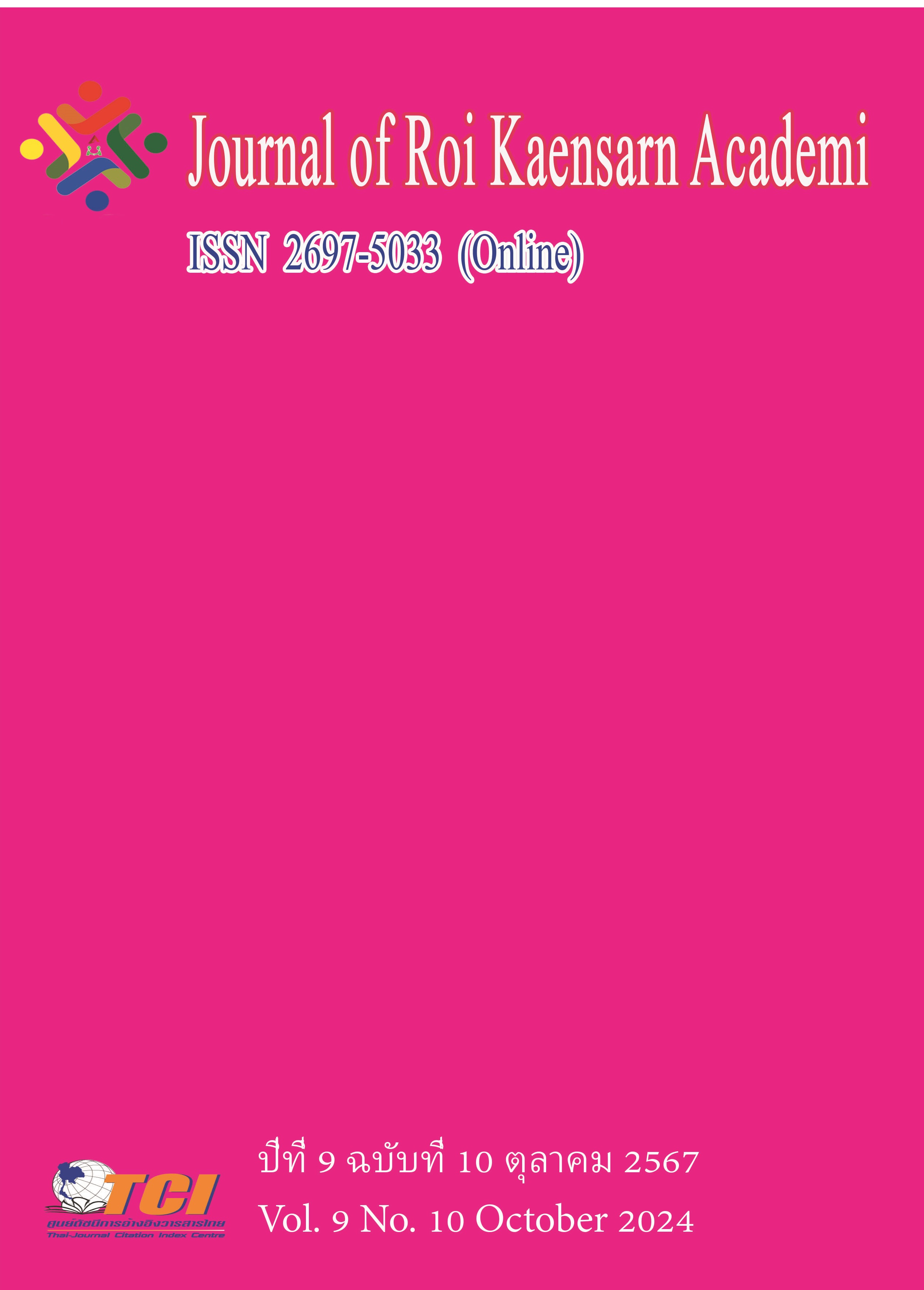The Roles of Family in Youth Preparation Process for Living in Society: A Case Study of Youth in SOS Children's Villages Thailand Under the Royal Patronage
Main Article Content
บทคัดย่อ
The Roles of Family in Youth Preparation Process for Living in Society is extremely important for children in alternative care. This research aims to study the process of preparing youths for integration into society under the care of the SOS Children's Villages Thailand and to explore the roles of family and youth workers in this preparation. This research was conducted with the qualitative research method. The research participants were divided into 3 categories: (1) social integration preparation for youth, (2) children and youth caregivers, and (3) youth over 18 years old who were in former care of SOS.
The study found that the roles of family in the preparation process include problem-solving, communication, preparation, emotional response, emotional bonding, and behavior control into the preparation process, which includes: 1. children and youth assessment with SOS families 2. comprehensive youth preparation 3. support in youth’s living experiment 4. post-social integration monitoring and support.
The study's recommendations are that families should play a role in promoting self-control, determination to succeed, and problem-solving skills. Families should also coordinate and refer youth with health issues to specialized professionals for assessment and treatment before they integrate into society. Additionally, families should be empowered, and family networks should be utilized to follow up and provide social support to youth. Moreover, post-integration support should be considered on a case-by-case basis and be flexible.
Article Details
References
Aonopas, S. & Wongrasethsuk, P. (2012). An Analysis of the Situation of Children's Rights in Thailand: A Case Study of Children at Risk of Losing Guardians and Children without Guardians. Faculty of Social Work and Social Welfare, Huachiew Chalermprakiet University.
Chaveepongdech, V. (2002). Readiness for Life Outside of Prison among Inmates of Klong Prem Central Prison Before Release. [Master's Thesis]. Thammasat University.
Costa, P.T. & McCrae, R.R. (1992). The Five-Factor Model of Personality and Its Relevance to Personality Disorders. Retrieved Sep 26, 2023, from https://www.researchgate.net /publication/248617484_The_FiveFactor_Model_of_Personality_and_Its_Relevance_to_Personality_Disorders.
Department of Children and Youth. (2022). Report on Child and Youth Development for the Year 2022. Institute for Population and Social Research, Mahidol University.
Epstein, Baldwin & Bishop. (1983). The McMaster Family Assessment Device. Journal of Marital and Family Therapy. 9 (2), 171-180.
Epstein, Baldwin and Bishop. (1983). The McMaster Family Assessment Device. Journal of Marital and Family Therapy. 9 (2), 171-180.
Ivan W. Miller, et al. (2000). The McMaster Approach to Families: theory, assessment, treatment and research. Journal of Family Therapy. 22, 168-189.
Jarupeng, M. (2017). Family Psychology. Danex Intercorporation.
Julmang, S. (2021). Strategies to Increase the Number of Students in Vocational Education at the Certificate Level in the Office of the Education Region 17. Retrieved on September 20, 2022, from https://reo17.moe.go.th/wp-content/uploads/2022/08/pdf.
Lertkrai, P. (2015). PROCESS OF PREPARING CHILDREN FORFAMILYREUNIFICATION: CHONBURI DEVELOPMENT AND REHABILITATION CENTER. [Master’s Thesis]. Thammasat University.
Lukbua, V. (2011). Readiness preparation prior to repatriation and social reintegration for preventing revictimization among Laotian human trafficking victims. [Master’s Thesis]. Thammasat University.
Lukbua, W. (2011). Preparing Lao Human Trafficking Victims for Reintegration into Society to Prevent Revictimization. [Master's Thesis]. Thammasat University.
Mahidol University. (2023). Growing Up Outside… in Institutions No One Sees. Online. Retrieved on May 20, 2023, from https://www.unicef.org/thailand/media/10851/file/ Polic y%20Brief_TH.pdf.
Michele Marenus. (2023). Howard Gardner’s Theory Of Multiple Intelligences. Online. Retrieved Sep 26, 2023, from https://www.simplypsychology.org/multiple-intelligences.html
Pairojkul, S., et al. (2004). Operation Manual for the Multidisciplinary Team in the Child Protection Process. The Center for the Protection of Children's Rights Foundation.
Rujisathiansap, T., et al. (2018). Research Report: A Study on the Situation of Children's Rights in Thailand: A Case Study of Children Who Have Lost Care and Children at Risk of Losing Parental/Guardian Care in 2018. SMILE COPY.
Sirison, N. (2023). Graduated but Why Do I Feel Sad? Understanding Post-Graduate Blues, Depression in Recent Graduates. Online. Retrieved from https://mutualfinding.co/ post-graduate-blue/.
Sirivanbusya, P. (1997). Family Psychology. Chulalongkorn University Press.
SOS Children’s Villages Thailand. (2022). Annual Report 2022, under the Royal Patronage of Her Majesty the Queen. Online. Retrieved on May 20, 2023, from https://www. sosthailand.org/getmedia/8ee67046-6faa-4855-bcf8-0a66a8a330c6/SOS-Annual-Report-2022.pdf
Sudhimolibodhi, M. (2020). Characteristics of individuals with Achievement Motivation. Journal of Buddhist Psychology, 5 (12), 12-17.
Thammaraksa, P., & Phawwatana, A. (2018). Emotional Intelligence and Risk Behaviors in Adolescents. Journal of Health and Nursing Research, 35 (3), 212-223.
United Nations. (2015). A Review of Alternative Care in Thailand: Policies to Practices with a Focus on Children Affected by HIV/AIDS. Thammasat University, School of Global Studies, and UNICEF Thailand.
